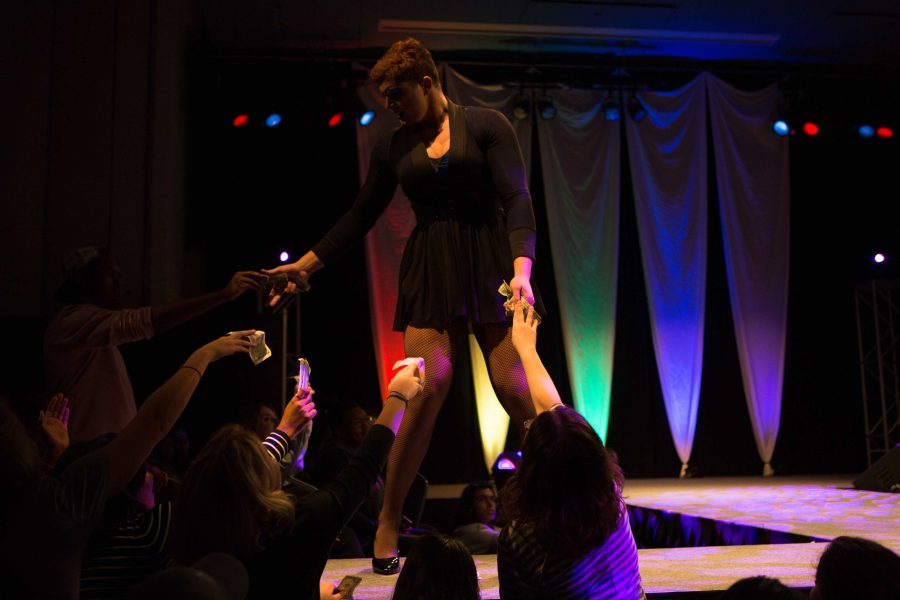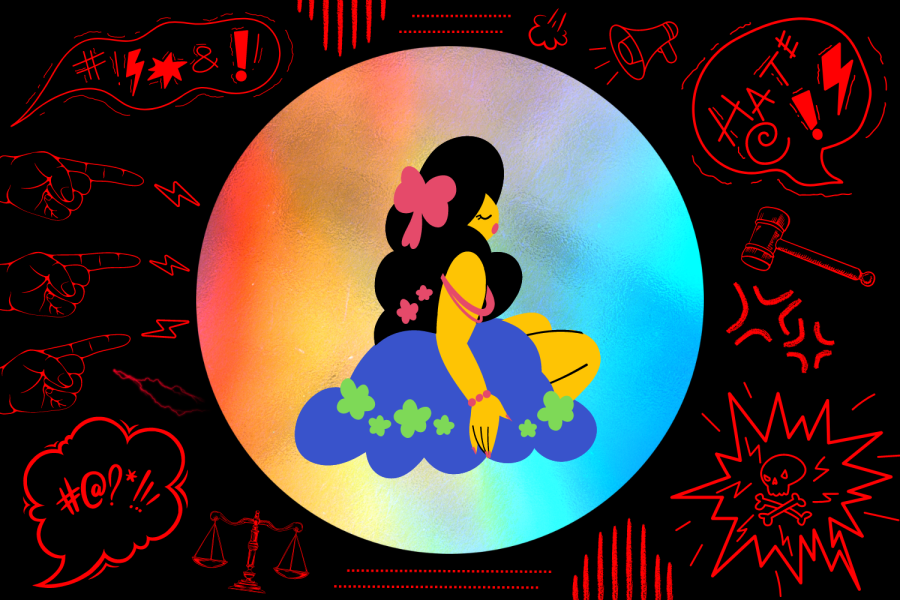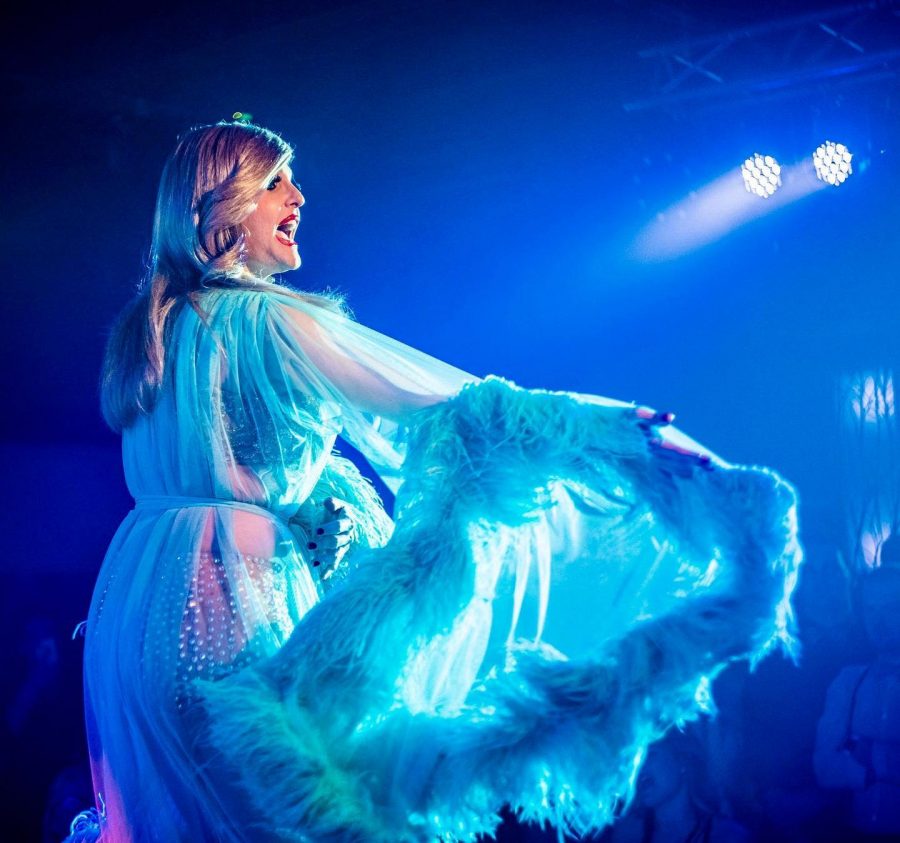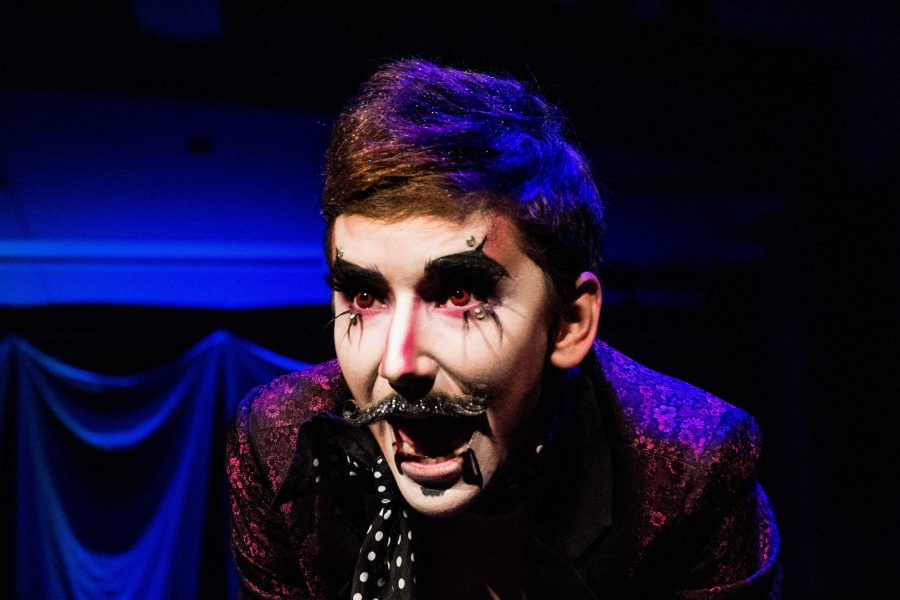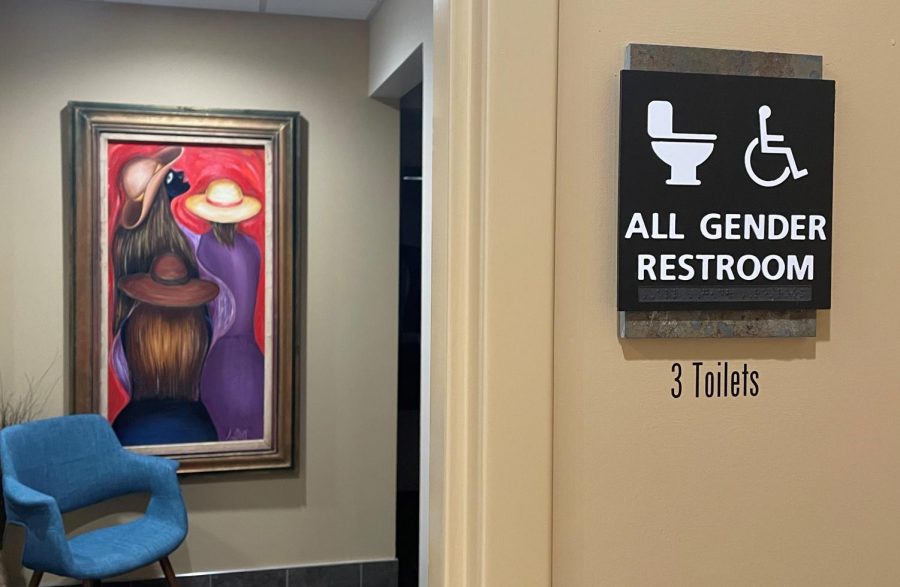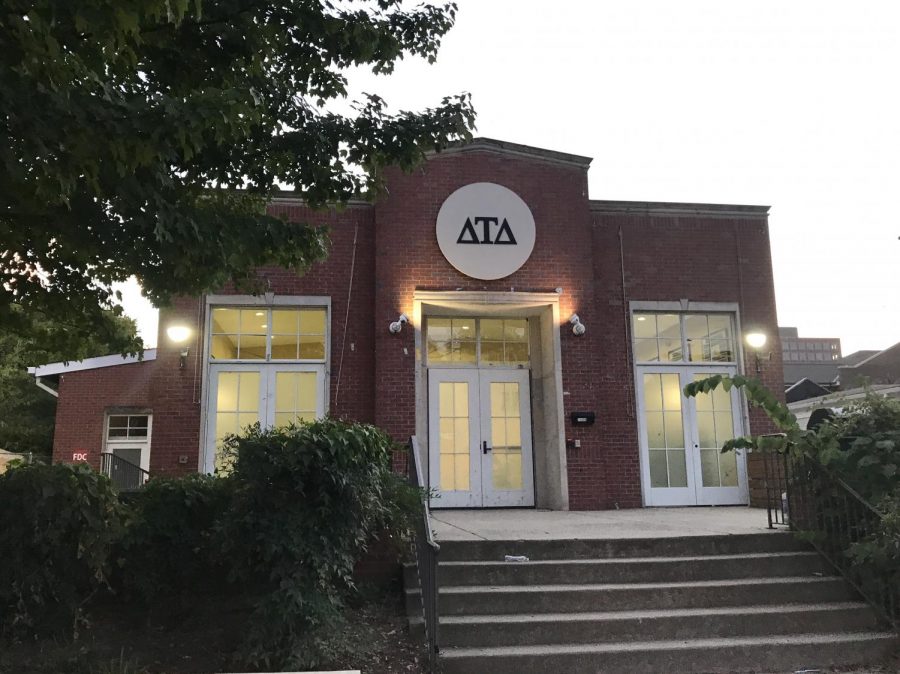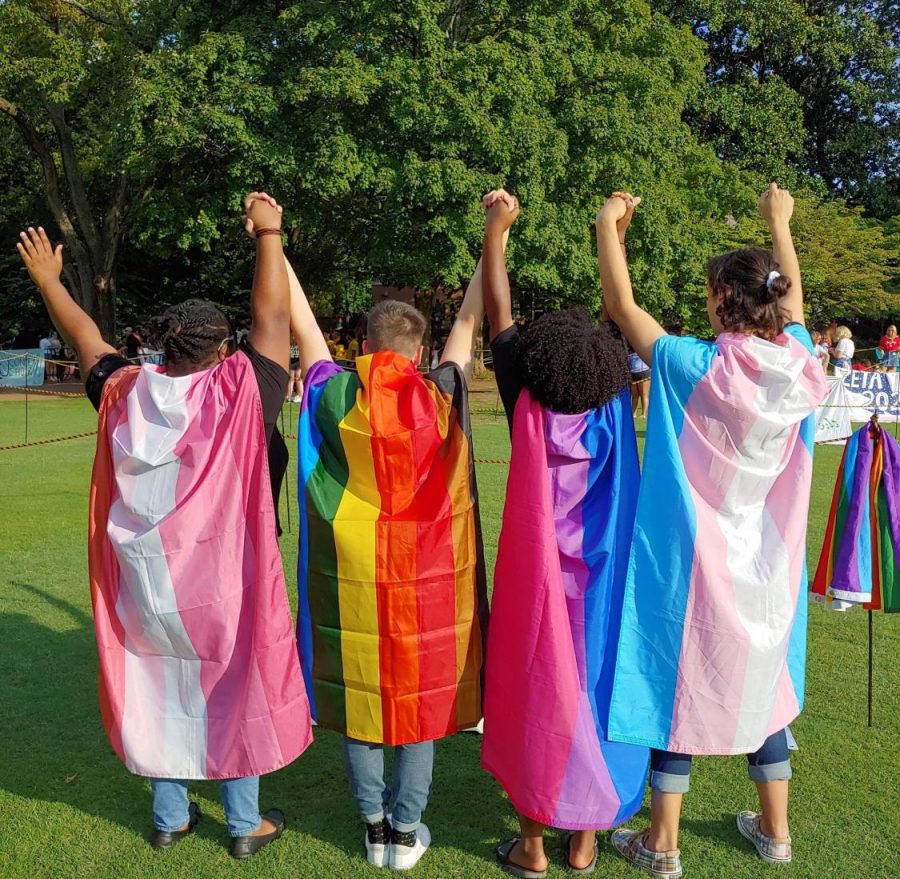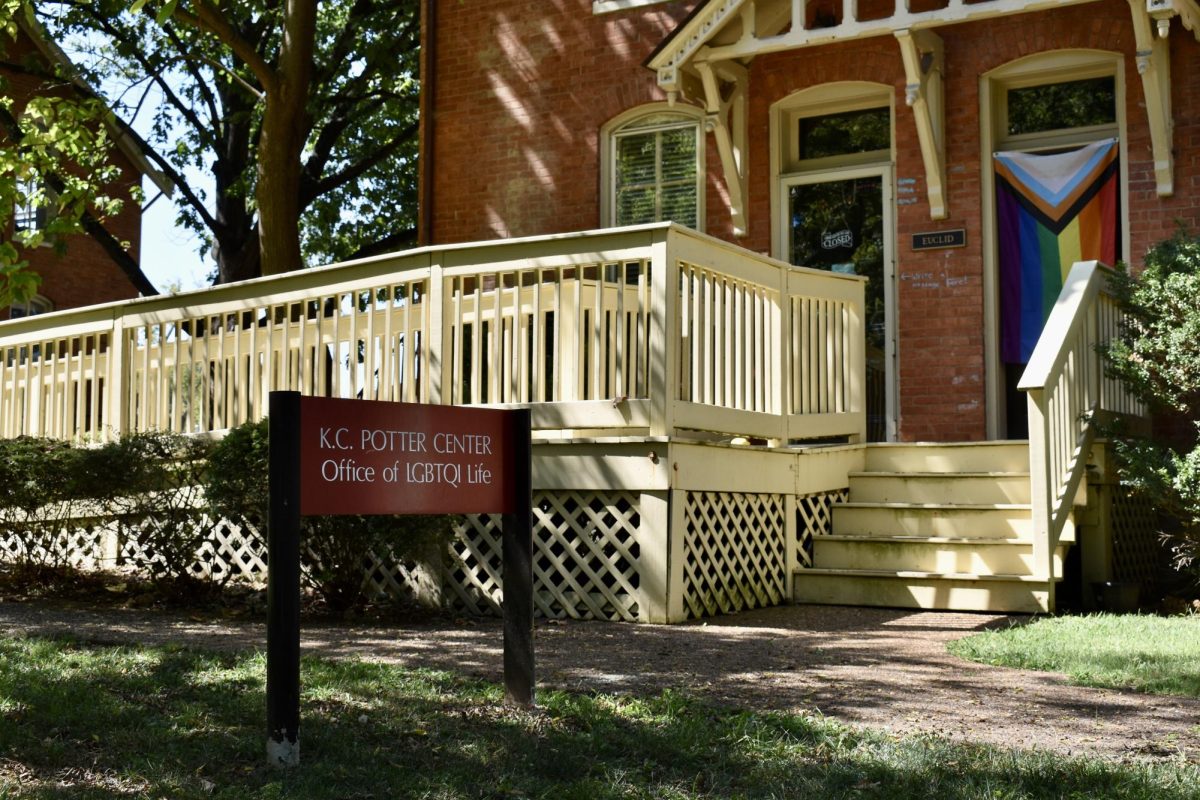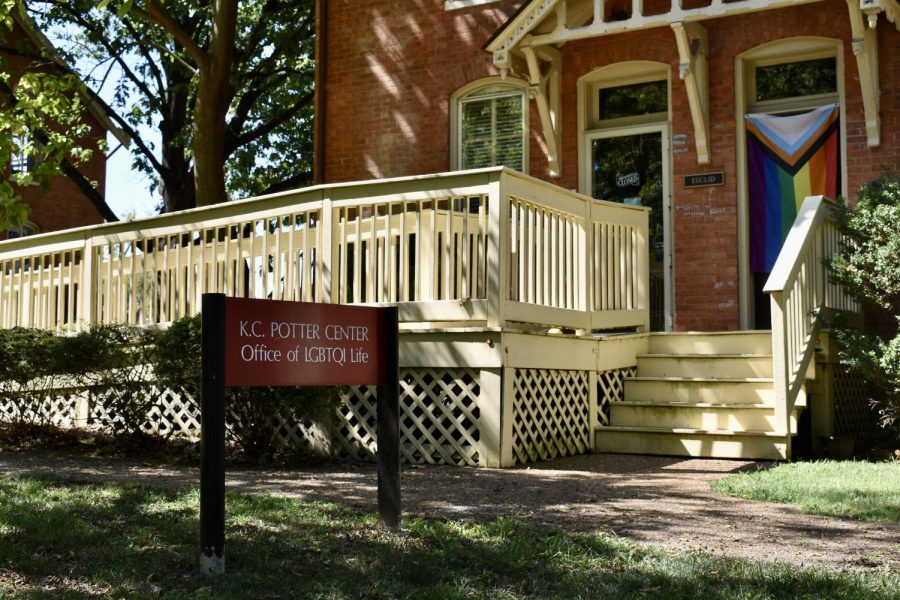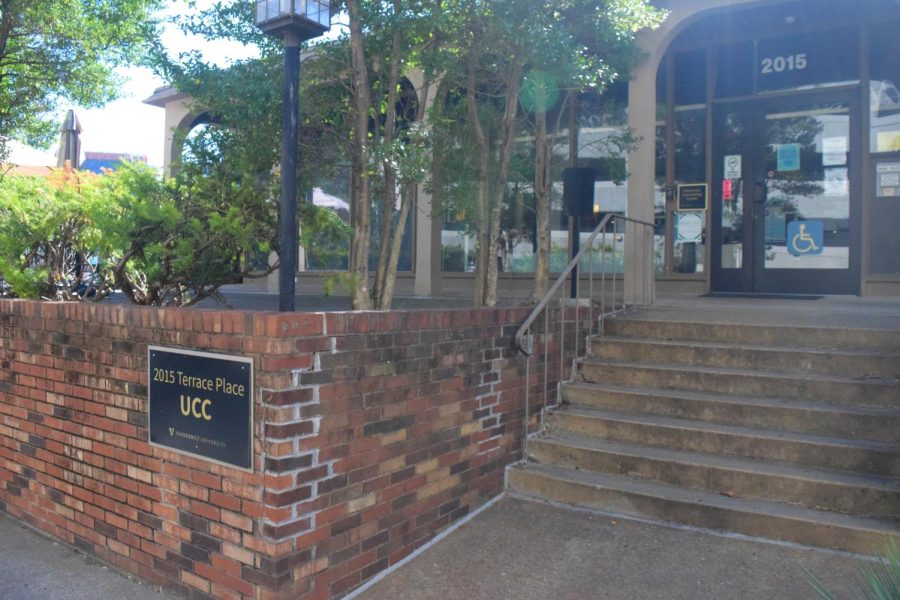Set against the backdrop of LGBTQ+ History Month, the Oct. 10 Lambda drag show is possibly the organization’s most anticipated event of the year.
Along with student performers, the candyland-themed show will feature three headliners: Chi Chi DeVayne from “RuPaul’s Drag Race,” Vanderbilt graduate Jack Rabid and Venus Ann Serena from Nashville’s own Play Dance Bar. While general admission is free, VIP tickets are available for $10. VIP ticket holders will receive a T-shirt as well as the opportunity to attend a candy-themed mocktail meet-and-greet where they can obtain photos and signatures from the headliners.
Lambda will donate all proceeds to the Just Us program from Nashville’s Oasis Center, which provides counseling services and safe spaces for LGBTQ+ high school students in Tennessee.
To junior Zhar Brassfield-Hall, the drag show is also a safe space. This will be his second year performing.
“Being a drag king gives me an opportunity to not be myself because in real life, if you’ve met me, I’m shy and reserved. I don’t talk very much,” he said. “But as soon as the lights hit me and I’m on stage, I’m a completely different person because I don’t look like myself anymore. I’m able to show what gender means to me: not a straight, clear-cut thing.”
Although he usually performs as a king, he is aiming for a more androgynous look this time around. This year, Brassfield-Hall will perform to “Sugar” by rapper Trick Daddy. His performance will be a throwback with a twist: a fusion of rainbow colors and ‘90s streetwear, his self-made costume will include a cotton candy wig as well as multi-colored facial hair.
To Lambda President Kayleigh Verboncoeur, drag—the costume, makeup, song and routine—is a constantly evolving art form. She said that drag is a way of honoring the LGBTQ+ community’s heritage of ball culture, an underground LGBTQ+ subculture featuring drag competitions and tight-knit communities known as “houses.”
“[Ball culture] was a space created in a lot of inner-city environments for Black and Latinx gay or trans people. It was a way for them to find community,” Verboncoeur said.
Just as drag evolved from ball culture, the various types of drag also have their own unique legacies. The origin of drag kings is entrenched in the historical lesbian bar scene; drag queens arose from the gay male and transgender women communities. Androgynous drag, according to Verboncoeur, has only recently emerged into the mainstream. Androgynous performers don’t present as a king or queen, but rather, in a diffusion of gender, as someone else.
The drag show also functions as a vehicle for Lambda’s mission on campus. One of the biggest issues that Verboncoeur said she sees is the lack of understanding towards the community. Dr. Chris Purcell, director of LGBTQ+ Life at the K.C. Potter Center, said much of the same.
“A lot of the lived experiences of LGBTQ+ students are more complicated experiences that don’t necessarily fit in the binary of ways of thinking, both in gender and sexuality. There are so many systems at Vanderbilt that depend on old ways of thinking,” he said. “It’s really centered on heterosexual folks and cisgender folks.”
Verboncoeur said that in its early days, Lambda essentially functioned as a secret society. Members met in locations passed along via careful word of mouth lest their gatherings be disclosed to the public. Although Vanderbilt has come a long way since then, Verboncoeur said that the day when Lambda is no longer necessary as a critical resource on campus hasn’t arrived yet.
“Contrary to what many people believe, we are not a monolith under [the LGBTQ+] acronym,” she said. “We have thoughts and feelings and hopes and dreams. It’s very apparent when I’m talking to someone on campus, and they’ll bring up transgender issues as a hypothetical, and it becomes immediately very apparent they’ve never spoken to a transgender person in their entire life. The way they speak about this hypothetical person is a stereotype. It’s always something wildly uncharacteristic of any human I’ve ever met in my entire life, or just blatantly misunderstanding the concept of, ‘This person is also a person.’ It’s very easy to generalize when you haven’t had that exposure.”
In other words, Verboncoeur said, despite general acceptance around campus, there is to some extent a lack of awareness surrounding the LGBTQ+ community.
While programming such as National Coming Out Day on Oct. 11 and the 10-year anniversary of the K.C. Potter Center on Oct. 24 are, according to Purcell, other ways to continue taking steps towards greater acceptance. To that end, the drag show is about both the celebration of self-expression and introducing the Vanderbilt community to the LGBTQ+ community within it.
“[The show is about] letting people know that we are here on campus, that we aren’t afraid to be ourselves and basically just a way for people to engage with us, empathize with us and understand us a little bit better, but in a fun way,” Verboncoeur said.
To both her and Brassfield-Hall, however, drag is far more than the sum of its parts. Behind the costume design, music choice and physical routine lies something deeper.
“For a lot of [the performers], it’s their first time ever being that true to themselves,” Verboncoeur, who will be featured in the show’s first-ever executive board number, said. “People discover themselves through drag. This is about what you get out of it. It’s not about putting on a show for everyone else. It’s about letting people see that you love yourself.”
For Brassfield-Hall, drag is a way to tell his own story.
“I only recently even came out to my parents as trans, so for me it’s still a journey that I’m going through. Seeing how the backlash from even that and announcing it on Facebook has been for me really difficult. But at the same time, this is a way for me to get my story out so that other people who maybe don’t understand as much about LGBTQ+ people can get more of an insight,” he said. “You should be able to see me as just a person still, just with different experiences than you. That’s how I view my drag in today’s climate. I’m showing you a piece of myself and giving you a perspective that you might not have had.”
Other future Lambda events include Rainbow Review Week, Lambda Prom and the Pride Fest combined with the end-of-year social. Additional educational and social outreach programming will focus on other issues, such as HIV/AIDS awareness and domestic violence within and against the community. To view more Lambda events, click here. For more information on LGBTQ+ History Month, visit LGBTQ+ Life’s website.
To purchase VIP tickets, email Lambda president Kayleigh Verboncoeur at [email protected] or Large Events Coordinator Arin Mason at [email protected].

